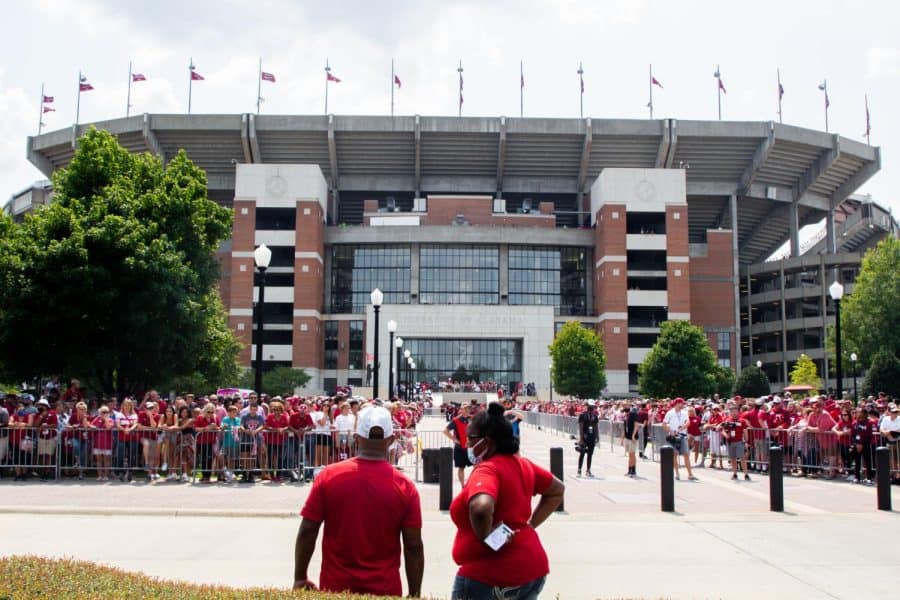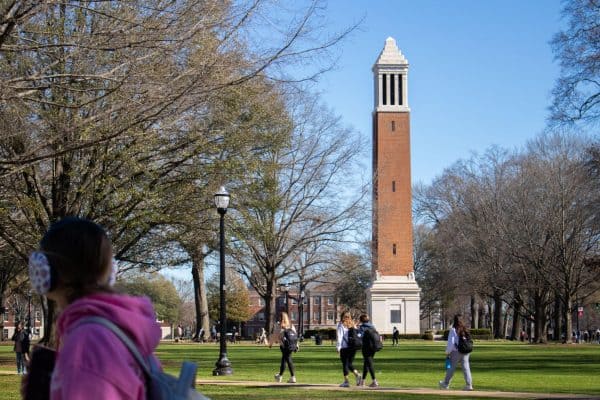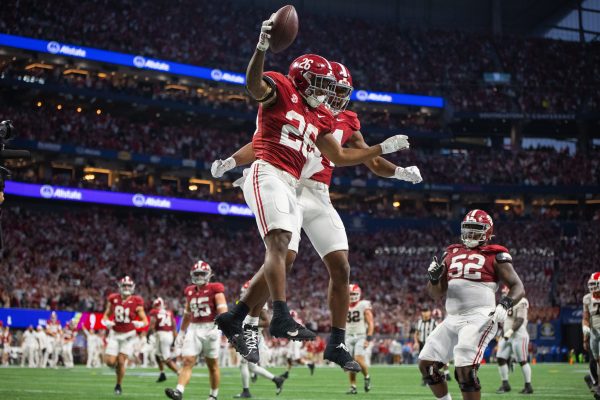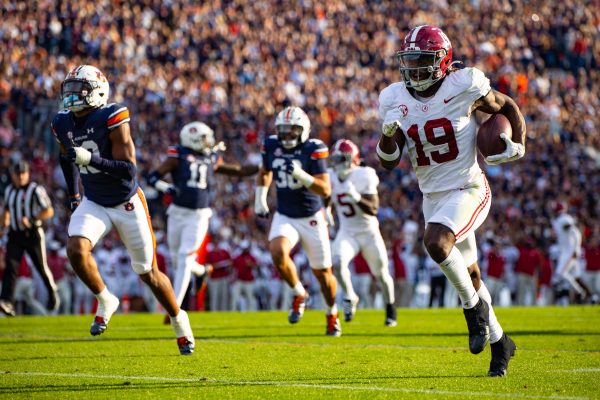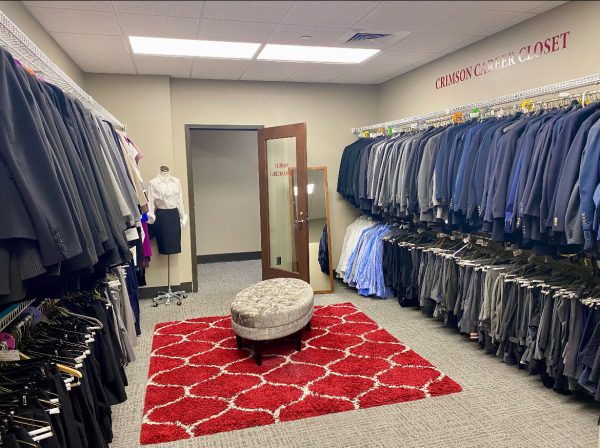Opinion | Football games don’t have to be superspreader events
October 3, 2021
Like many of you, I am very happy that college football is back in full swing. Having the Crimson Tide play right in our backyard is certainly one of the most exciting aspects of being a student at The University of Alabama, and the level of excitement surrounding this season might be even higher than usual considering the virus-induced capacity restrictions last fall.
I have been scrambling to find tickets to as many games as possible after only attending last year’s home-opener against Texas A&M. However, as I sat in the upper bowl of Bryant-Denny Stadium at the Southern Miss game, I couldn’t help but let my mind drift back to that all-too-familiar feeling of COVID-19 paranoia.
It felt nearly impossible to not think about our recent pandemic nightmare while sitting, standing, cheering and booing alongside in a stadium that holds 100,000 fans. Just a year ago, I remember that stadium being one-fifth as full, with masks everywhere.
Of course, COVID-19 persists. Thankfully, the number of cases on campus is low — sitting at 27 students and 13 faculty and staff as of Sept. 26 — but a packed game at Bryant-Denny could still be the perfect setting for the virus to spread.
Perhaps there would be less cause for concern if nearly 100% of students were vaccinated, but they are not: Only around 61% have reported receiving at least one dose.
However, it is not only students attending the games. The general public also fills the 100,000 seats of Bryant-Denny. In Tuscaloosa County, only 37% of residents are fully vaccinated, and there have been 59 COVID-19-related deaths in the past two weeks. In addition, only 42% of Alabamians are fully vaccinated.
Because of these low vaccination rates, the University should institute some form of COVID-19 protocol for home football games. As we approach games where the Tide will face rivals like Tennessee and stronger opponents like Arkansas, we can expect Bryant-Denny Stadium to get even more crowded. When 100,000 people are filling those seats, being outdoors will not stop the spread.
Imagine if last Saturday’s Ole Miss game leaves fans hospitalized and intubated. We should never allow such consequences from an Alabama football game.
Beyond these obviously horrible public health implications, such a circumstance would also affect our ability to attend future games. Maybe the capacity would be lowered once again. Maybe the entire season would be put on hold. I would rather not find out, and I expect the rest of the University feels the same way.
As far as specific policies are concerned, the University should require proof of vaccination or a negative COVID-19 test prior to attending a game. For those who are already vaccinated this would pose no inconvenience; for those who are not, this would allow them to still enjoy the games while minimizing the risk that they might pose to themselves and others. The University would not even be alone in taking this action; other SEC schools such as LSU have instituted a COVID-19 policy since the beginning of the season.
I’ve said it once, and I’ll say it again: The pandemic isn’t over, especially not in Alabama.
If you have not yet received a dose, I urge you to — for your own sake, for the sake of your neighbors, and if those reasons are not enough for you, for the sake of college football. I urge The University of Alabama to do everything in its power to ensure the safety of our community;. Requiring proof of vaccination or COVID-19 test results for football games is an easy way to do so.

